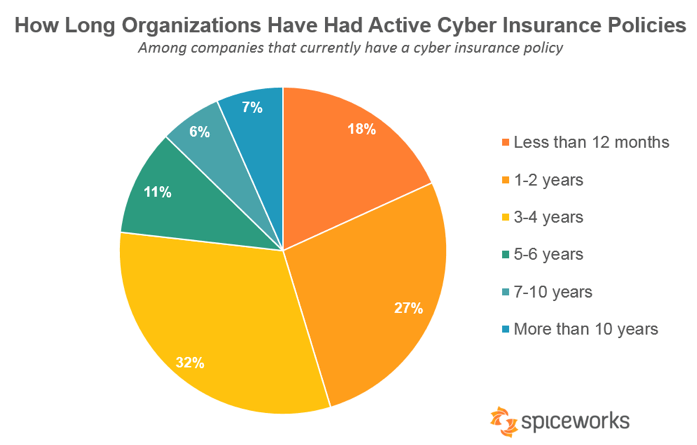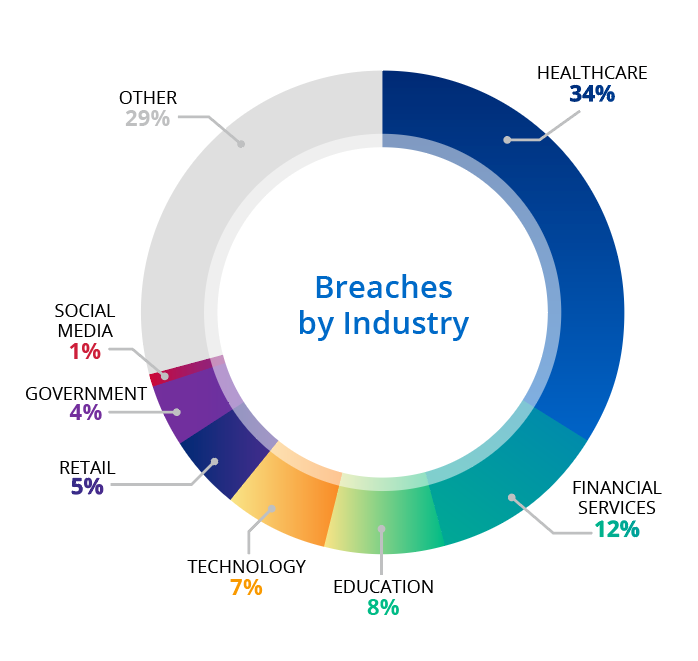Don’t have the time to read?
Listen here instead or save to your spotify playlist
The modern business landscape thrives on data, with companies large and small leveraging information to drive growth and innovation. However, as more and more data breaches become a common headline, the looming threat to digital assets becomes undeniable.
IBM’s recent findings indicate a chilling reality: data breaches have an average projected cost of nearly $4.45 million. For smaller businesses, it’s estimated that the average cost per breached record is $164.
| In a world where data is the new currency, the threat of breaches is not just an IT concern but a business imperative. Data breach insurance is no longer a luxury—it’s a necessity for the resilient business of tomorrow.”
— Christian Hernandez, CEO, JCM Telecom. |
The cost of a data breach is not just about stolen information; it’s the destruction of hard-won trust, the lasting scars on brand image, and the crippling financial aftershocks.
With stakes this high, data breach insurance emerges not as an option but a critical necessity for businesses aiming to weather potential cyber storms.
What is a Data Breach?
We often hear the term ‘data breach,’ but what does it mean? A data breach occurs when unauthorized individuals access, steal, or use your confidential data, often leading to a myriad of complications. Here are some common types:
- Malicious Attacks: When hackers purposefully infiltrate a computer system with the intent to steal or corrupt data.
- Human Errors: Mistakes made by employees, like sending sensitive data to the wrong person.
- System Glitches: Technical issues that unintentionally expose data.
No matter your business’s size, the reality is that you’re at risk, especially if you handle sensitive information like social security numbers or bank account information.
Nervous About Potential Data Breaches?
JCM Telecom safeguards 5,000+ businesses just like yours.
Get Protection
What is Data Breach Insurance?
At its core, data breach insurance is a specialized form of business insurance crafted to address data breaches and cyberattacks, as listed by CloudSecureTech. While traditional insurance might cover physical assets, data breach insurance focuses on the intangible.
It’s about protecting against the fallout from leaked personal identifiable information (PII), stolen bank account information, or compromised social security numbers.
In an age where a company’s data can be as valuable as its physical assets, this insurance becomes an indispensable layer of protection.
Why is Data Breach Insurance So Important?
Imagine facing a cyber incident where not only is your data compromised, but the aftermath results in legal battles, identity theft concerns for customers, and financial loss from business interruption. Data breach insurance helps businesses bounce back, providing them with the necessary resources and expertise.
Studies show that 73% of cyber insurance claims were due to data breaches, incident response, and crisis management. This makes it pretty evident that having insurance against data breaches is not merely a luxury or an afterthought; it’s a proactive measure for any business that values its digital assets and the trust of its clientele.

Source: Spiceworks
What Does Data Breach Insurance Cover?
Data breach insurance acts as your financial guardian, shielding you from the treacherous aftermath of cyber breaches. Here’s a closer look at its components:
First-party Coverage:
- Notification Costs: It’s often legally required to notify affected parties after a breach. This coverage handles the costs of reaching out to them, whether by mail, phone, or other means.
- Public Relations: Managing the narrative after a breach is crucial. This covers the cost of PR campaigns to restore trust and confidence.
- Business Interruption: If your operations are halted due to a breach, this aspect of the insurance aids in compensating for the loss of income during that period.
Third-party Liability:
- Defense Costs: If affected parties decide to sue, this part of the insurance helps in covering legal defense fees.
- Settlements and Judgments: In case the legal judgment goes against your business, this ensures you’re not left stranded with hefty payouts.
Which Type of Businesses Needs Data Breach Insurance?
The need for cyber data breach insurance is not limited to just sectors perceived as ‘high-tech’ or ‘large-scale.’ The evolution of cyber threats has democratized the risk, placing every entity that manages digital data – regardless of its size or domain, firmly within potential crosshairs.
Several types of businesses, due to the nature of the data they manage, find themselves more susceptible to cyber threats:
Hospitals and Healthcare Institutions
The healthcare sector remains one of the most targeted by cybercriminals. In fact, research proves that 30% of all large data breaches occur in hospitals.
Why? Medical records. These documents contain a treasure trove of personal information: names, addresses, medical histories, and often financial details.
IT and Technology Companies
Tech businesses often manage vast databases, run cloud services, or develop software that thousands, if not millions, depend on. Because of this, they are often the main targets for data breaches.
Businesses Storing Customer Data
Any business storing customer data, from credit card details to personal identifiable information, they’re a potential target for cybercriminals. This includes the likes of E-commerce platforms, online banks, educational institutions, if they have an online presence or a digital customer database, they’re at risk.

Source: Security Magazine
Why Every Business Leader Needs Data Breach Insurance
Cyber threats don’t play by the rules. They strike when least expected, and the fallout can be massive. Here’s why every prudent business leader should seriously consider investing in cyber data breach insurance:
- Protection against financial setbacks
- Get expert cybersecurity assistance at your fingertips
- Manage public perception better
- Manage losses & ensure business continuity
- Assistance in ensuring regulatory compliance
- Get help with legal defense
- Gain peace of mind knowing you’re protected
- Ensures future preparedness
- Holistic Business Protection
Remember, data breach coverage is as essential as your general liability insurance.
6 Tips for Choosing the Right Coverage
Navigating the world of data breach insurance can be challenging, especially with the various options available. Here are six tips to help guide your decision:
1. Assess Your Risk:
- Quantify Your Data: Begin by understanding the volume of data you manage. Do you handle a few hundred records, or are you storing data for millions?
- Type of Data: Not all data is created equal. Storing customer names is different from storing their bank account information or social security numbers. Understand the sensitivity of the data in your custody.
2. Work with Trusted Advisors
- Insurance Experts: It’s essential to consult with professionals who specialize in cyber data breach insurance. They can offer insights tailored to your industry and risk profile.
- Don’t Compromise: Just as you wouldn’t opt for the cheapest, bare-minimum business insurance, prioritize quality and comprehensive coverage when it comes to protecting your data.
Doubting Your IT's Defense Against Breaches?
JCM Telecom enhances security and cuts costs by 40%
Learn More
3. Understand the Terms
Some insurance policies might come with jargon or conditions that aren’t immediately clear. Make sure you fully grasp what is covered and, just as importantly, what isn’t.
4. Coverage Flexibility
The digital landscape and cyber threats are continually evolving. Ensure your coverage can be adjusted or expanded in the future to account for new risks.
5. Consider the Claim Process
In the unfortunate event of a breach, you’d want the claim process to be as smooth as possible. Research potential insurers’ claim histories and consider reviews or testimonials from other businesses.
6. Review Regularly
As your business grows and evolves, so will your insurance needs. Make it a habit to review and adjust your coverage annually or whenever significant changes occur in your operations.
| More resources you might like: |
Trust JCM Telecom to Shield You From Cyber Threats
JCM Telecom is your steadfast partner in navigating the intricate realm of cybersecurity. We recognize the profound challenges businesses confront during data breaches, and we’re committed to being your anchor during such tough times.
Our team of experts brings a wealth of knowledge and experience to the table, expertly guiding you through any IT issues, from establishing fortified firewalls and mitigating phishing attacks to comprehensive data recovery and cloud security.
Your business’s digital safety is our top priority. Contact us today to fortify your defenses and ensure your enterprise thrives in this digital age.


